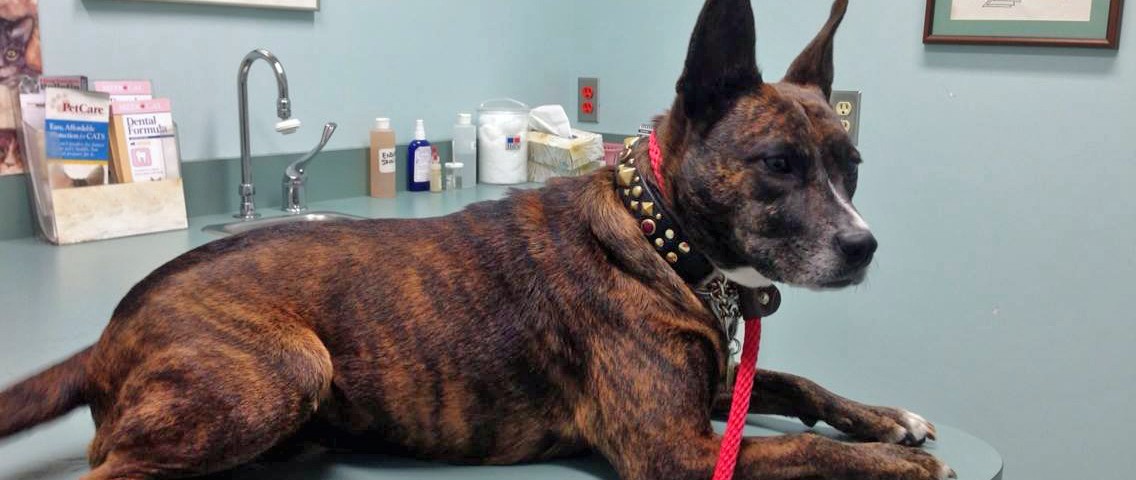Finding a veterinarian for your pet is easy, but choosing the right one can be a difficult task. We trust veterinarians as our pet’s medical professionals so it is important to be comfortable with your choice. There are a number of factors to consider when finding a good fit for both you and your pet. A veterinarian whose beliefs are in line with yours can dramatically reduce your stress and make for a positive experience. Pets pick up on their owner’s energy so it is important for you to remain relaxed and calm during the visit.
The following are some of the factors I consider when selecting the right veterinarian. Some owners select a vet based on close proximity to their home while others are willing to drive hours to have their needs met. Every pet owner will have a different list depending on what is important to that individual.
Cost
While it would be great to live in a world where we did not have to worry about expenses, the cost of veterinary care is a reality we have to deal with. I do not believe that cost determines the quality of care you will receive, but compromising quality to save money could cost you when medical concerns are missed or misdiagnosed. My dogs have received great care at a lower cost clinic and I stayed with this clinic until a few unfortunate experiences. I stopped going to that clinic when I found the quality of care became inconsistent. Again, compromising your pet’s health care is not worth saving a few dollars.
Personality
The personality of the veterinarian and their staff is a big factor for me as I care about how my dog is treated. I currently own a fearful dog and she LOVES her vet and all of the staff at the clinic. The energy of the clinic is calm and relaxed and they treat each animal with love and respect. I feel that every pet deserves the care that my veterinarian provides and I proudly share her information with any pet owner who asks.
Our pets deserve to be treated with kindness and compassion. If at any time during a veterinary visit, you do not feel 100% comfortable with the way your pet is being treated, please find another vet.
Vaccinations vs. Titer Tests
Over vaccination has become a hot topic in pet care over the past few years. Many pet owners are educating themselves and opting to perform titer tests before repeat vaccinations. A titer test is a blood test that measures the level of antibodies to disease in your pet’s blood. Often times, the test shows a positive response, meaning that the dog or cat is protected from that specific disease and does not need to be re-vaccinated.
Many veterinarians still follow strict vaccination schedules and vaccinate pets yearly. If this happens to be an important issue for you, I would recommend finding a veterinarian who can properly advise you on alternatives to vaccination.
Heartworm/Flea/Tick Preventatives
I started researching heartworm treatments when I adopted a heartworm positive dog from North Carolina. I learned a lot about the different parasites and I researched the pesticides I was putting on my dogs each month. I did not feel comfortable with the risks associated with these chemical treatments and I had questions about how effective they really were. I had a discussion with my vet and we agreed on an alternative prevention plan based on my lifestyle. I believe it is important to have a trusted veterinary professional who can provide you with unbiased, knowledge-based advice.
Diets
One of the most important factors in the daily health of your pet is diet, which makes it shocking that canine and feline nutrition is a minimal part of veterinary studies. To add to that shock, the lessons that are provided are primarily taught by the same pet food manufacturers that provide funding to the colleges. Unfortunately, this means that in order for a veterinarian to gain unbiased knowledge in pet nutrition, they need to look beyond their formal education.
I find that working with a veterinarian who has nutritional knowledge is beneficial to your pet’s health. If your vet cannot properly advise you on a species appropriate diet, you run the risk of masking symptoms with medication. For example, dogs are sometimes prescribed prednisone to mask the symptoms of allergies when a simple diet change can often eliminate the allergen.
Ask your vet what their views are on nutrition. If nutrition is an important topic for you, find a vet that is as passionate about it as you are.
We are fortunate to have an abundance of information at our fingertips. The Internet provides us with professional knowledge from all over the world. Two of my favourite teachers are Dr. Jean Dodds and Dr. Karen Becker. These two veterinarians have made a tremendous impact in introducing pet owners to the non-traditional side of veterinary medicine. These women are great speakers and they cover topics such as diet, vaccinations, and healthcare. They both have books and teach at conferences, but they also share a ton of information on their blogs.
If you are doing your own research, be sure to find quality information from reputable sources. Be your pet’s advocate and be prepared to seek out another opinion if you are uncomfortable with the way you or your pet is being treated. I encourage you to make a list of the factors that are important to you and find a vet who meets your criteria.
Resource List:
- Dr. Jean Dodds, DVM
- Dr. Karen Becker, DVM
- Kymythy Schultze
- Dogs Naturally Magazine
- Available in store or online at http://www.dogsnaturallymagazine.com
- Natural Canine Health Symposium
- Online Conference: October 23rd to 25th
- http://nchs.dogsnaturallymagazine.com





